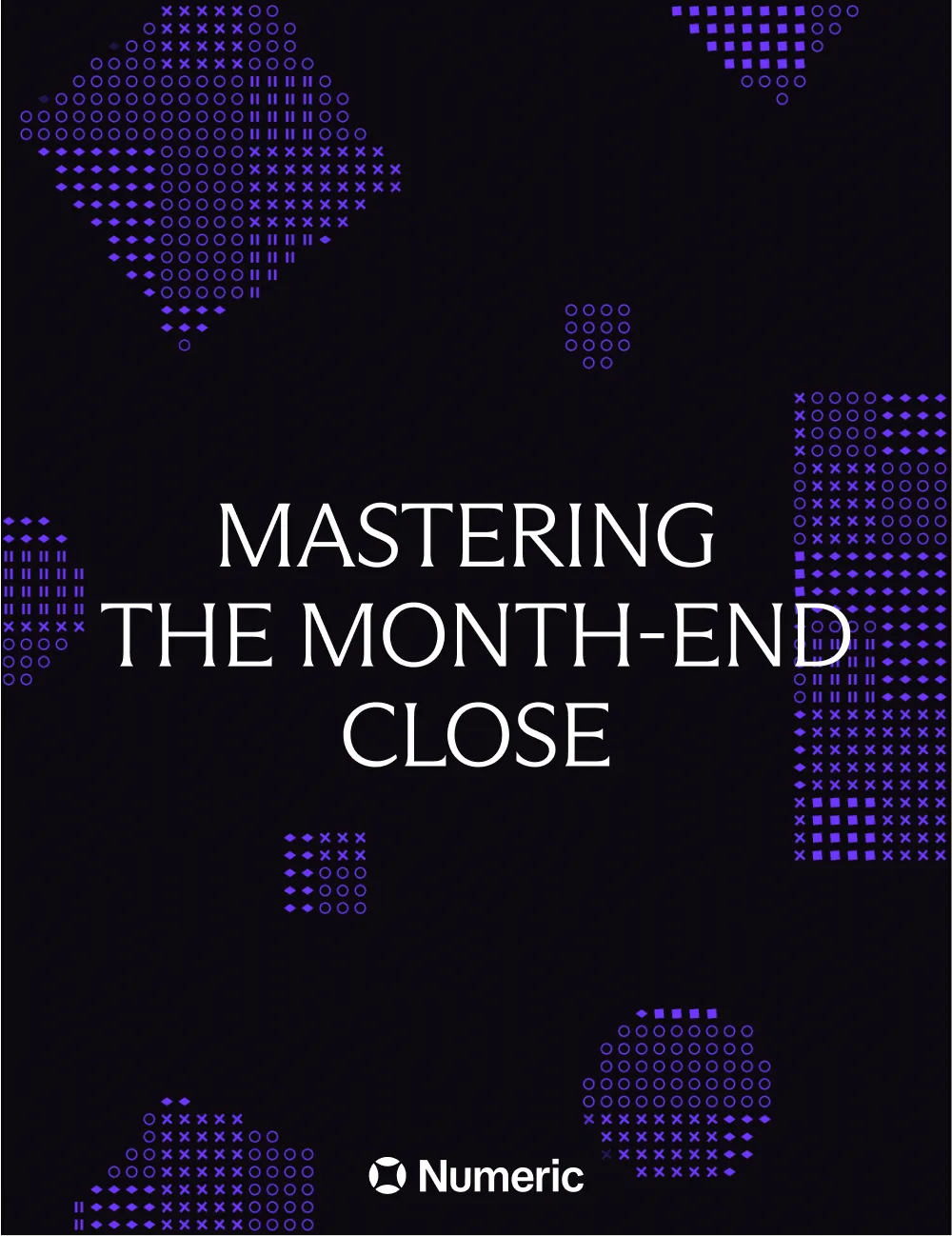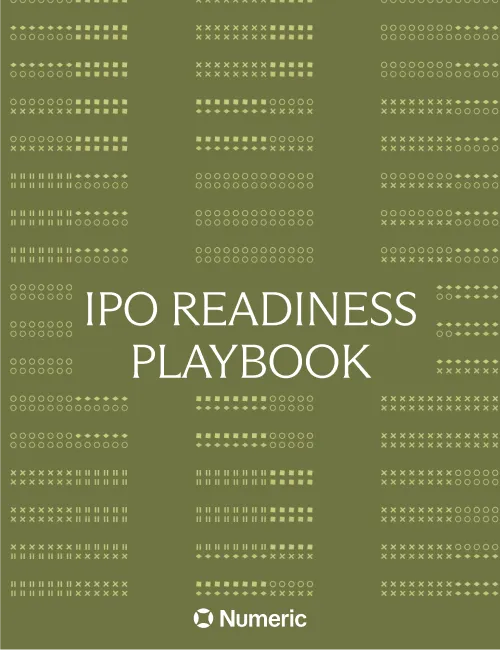The New Accountant Skillset: 4 Skills Accountants Will Need in the AI Era
.webp)
We firmly believe that AI isn’t poised to replace accountants, and instead will revolutionize their work by automating tedious manual processes. However, the rapid advancement of AI, exemplified by ChatGPT’s recent success in passing the CPA exam, is definitely raising the bar for the skills accountants need to bring to the table. As Sowmya Ranganathan, Controller at OpenAI says,
“...if you hope to build an accounting team of the future, I think the expectations of what a person can accomplish are just a step function higher than two or three years ago.”
In light of these developments and the ongoing accounting shortage, firms may opt to maintain leaner teams over hiring less experienced entry-level accountants.
Based on our discussions with customers and seasoned accountants, we’ve identified a “new accountant skillset” – a set of traits and expertise that characterize top-performing accountants in the AI era.
For a deep dive into how AI is changing the accounting industry, read Numeric's complete guide to AI for accountants.
What is the new accountant skill set?
These four qualities will be fundamental for future accounting success:
- Strong technical accounting ability
- Understanding of accounting systems
- Micro-product management
- Interpretive acumen
Below, we’ve outlined how these traits crop up within existing workflows and team dynamics.
Strong technical accounting ability
Large language models are impressive, but when it comes to understanding accounting nuances, they’re still a bit behind. Passing the CPA exam is no easy feat, but the daily thinking required in accounting often surpasses the test's demands, limiting AI's response capabilities.
Accountants will continue to excel where AI falls short on the merits of their technical accounting skill. A key part of this is recognizing when a business decision has an accounting impact in the first place—something that's easy for an accountant skilled in technical accounting but nearly impossible for AI. For example, if the marketing team spends money on a big ad campaign, can you correctly account for the billboards used as embedded leases?
Consider the stickiness of an area like contracts: if agreements have embedded derivatives or intricate clauses regarding equity, accountants are liable for knowing when and where to apply the appropriate accounting treatments. The same goes for matching certain conditions, such as revenue recognition, to a company’s internal policy.
Good accountants must know more than the basics of cash-basis accounting, especially given that AI is already pretty good at doing these calculations and writing journal entries.
Architecting accounting systems
AI accounting software is just one part of a larger picture. No single solution can handle every task – different software manages payroll, company credit cards, close management, and more. Even ERPS, the massive applications that serve as the central hub for company finances, rely on add-ons to cover functionalities outside the core product.
With so many options available, choosing the right tools can drive progress while the wrong tools saddle teams with substantial software debt, or worse, disrupt the working environment. Good accountants generally understand the breadth of the finance tech stack, but the best ones see how these tools align within their business context. From there, they determine which tools to integrate and then build a system around them.
As Connor Foran, Numeric Solutions lead and former Controller at Squarespace, asks, “We’re probably not moving toward a do-it-all system – are you able to look at a process or workflow, and then think about where you can inject tools to minimize bottlenecks?”
As AI grows in scale and implementation, accountants should definitely familiarize themselves with the AI basics. More importantly though, they should identify the gaps in their system where AI can make a meaningful impact. Knowing how to layer AI into existing systems architecture will help when deciding where to prioritize and invest in technical resources.
Your Go To Guide For All Things AI in Accounting
Micro-product management
Future accountants will need to think like product managers. Instead of spending time in the weeds themselves, great accountants in the AI era will build tools that tackle the “micro” tasks that eat away at time better spent on higher-value activities.
What are these “micro” tasks? They often take the form of logistical snaggles that can be easily overcome, but still take time to address: the back-and-forth emailing to get someone to submit an expense report, the questions that constantly pop up about something you’ve already answered dozens of times. Easy to handle? Yes. Distracting and time-consuming? Yes.
In turn, adept accounting teams are using micro tools to do away with these micro tasks. One popular micro-tool is the internal GPT, an offering to enterprise ChatGPT customers who can make their own GPTs for internal solutions.
Say you receive 10 messages each month-end close about the company spend policy: instead of resigning yourself to having to answer each question every time, you could easily build an internal GPT, train it on your company’s policies, and then direct these nagging inquirers to the GPT in the future.
Interpretive acumen
Someone from the FP&A team comes over and asks you to explain why last month’s revenue numbers look different after you made an adjustment to the company’s revenue recognition policy: they’re looking for a quick answer to continue their forecasting work. How do you respond?
This situation illustrates another desirable accounting quality – the ability to explain accounting, especially in your company’s context, in layman’s terms.
As AI moves accountants from traditional number-crunchers into the role of strategic partner, they will need to be able to relay what’s happening in the accounting world in a digestible way. Thus, instead of getting into the meaty details of something like ASC 606, you’ll have to quickly get to the core of this FP&A question, which is essentially asking why you made the change and if that change is important. The same goes for collaboration with teams further from the finance department – marketing, sales, etc. – whose decisions all impact accounting.
AI is impressive, but it's not intuitive enough to handle these nuanced tasks, leaving room for human accountants to continue providing unique value.
What will accounting teams of the future look like?
AI won’t just alter the focus of individual accountants: it will also affect how teams, more broadly, choose to allocate their time and energy. In the AI era, accounting teams will prioritize these key areas:
- Larger focus on data analysis and insights: some text
- AI-powered tools can streamline the month-end close by scanning transactions for anomalies, generating variance explanations, and by generally reducing manual processes. As a result, they save time by automating initial data analysis, giving more accountants more time to focus on interpreting results, collaborating with business partners, and uncovering insights.
- Broad skillset with later specialization: some text
- It’s less likely that future accounting teams will have designated roles for tasks like A/R, A/P, accruals, and more. Team members will instead have to have a strong understanding of all types of accounting functions, know what tasks can be better solved by AI or software vs. human effort, and then identify where their time should be best spent after that.
- Closer relationship with core business stakeholderssome text
- The qualities above forecast (pun intended) an evolution for most accounting teams as they will be able to build stronger relationships with cross-functional partners, particularly the FP&A team. By leveraging AI tools and more, these teams will have accurate financial data far sooner than before, leaving more time to focus on strategic insights and decision-making.
As AI does away with much of the quantitative busy-work that defines the industry, accounting teams will spend more time culling insights about the business and using them to strategize with key partners.
Beyond AI – The Accountant’s Edge
Current accountants shouldn’t focus on competing with AI technologies. Instead, they should master the aspects of accounting that computers are far from fully understanding: the nuances of advanced accounting concepts, the intricacies of accounting systems, and the relationship between accounting and individual business contexts. By doing so, skilled accounting professionals will continue to prove their value, even as new technologies emerge.





















.png)